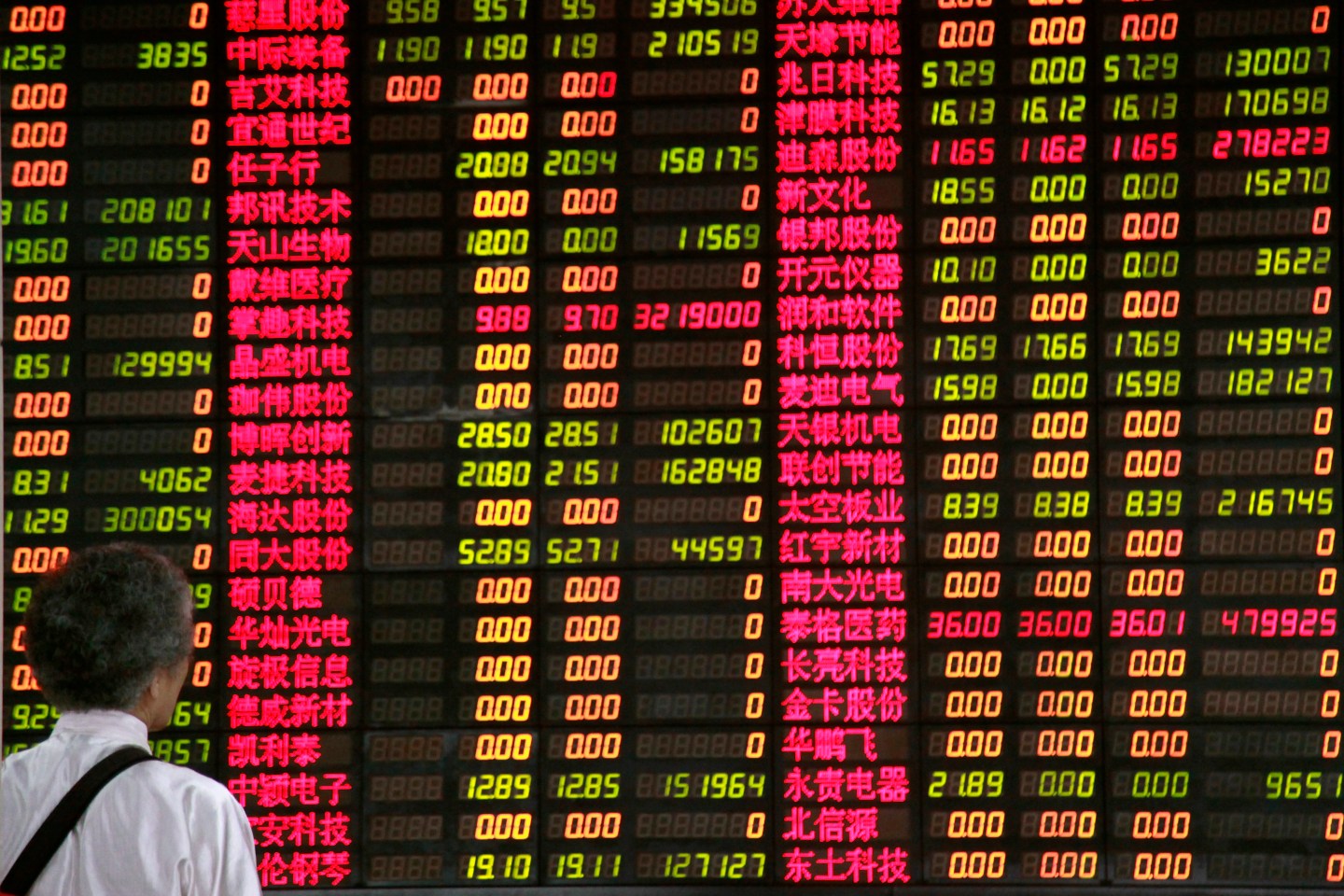Despite falling by more than three percentage points at midday trading, the Shanghai stock composite rallied to finish Monday by ending down less than one percent, at -0.82%.
Chinese traders may have turned bullish, but the late-afternoon rise likely had something to do with the news this morning that China’s regulator in charge of the state’s stock market rescue package was re-starting its outright buying of shares. The China Securities Regulatory Commission asked the country’s brokerages to pledge 100 billion yuan (about $16 billion) to a rescue fund over the weekend, in addition to buying back their own shares, Cailian and other Chinese press outlets reported Sunday night.
The news comes after other Chinese regulators stopped buying stocks directly early last week, which led to a collapse that China’s state press dubbed Black Monday and sent global stock markets reeling. Now it appears that sitting by in silence last week may not have been a policy change to let free market forces take over—the government may have just been biding its time.
This week China is hosting a military parade that is being called China’s biggest-ever celebration of the end of World War II. Officially labeled the “Victory of the Chinese People’s Resistance Against Japanese Aggression and the World Anti-Fascist War,” the parade led by President Xi Jinping is responsible for the government shutting down Beijing’s airport and businesses, stepping up online censorship, and now, apparently, supporting the stock market.
“Xi can’t afford to lose any face this week because this is a coronation ceremony for him,” Willy Lam, an expert on Chinese politics and adjunct professor at the Chinese University of Hong Kong, said in an email. Lam says the stock market is one part of China’s makeup package. The province surrounding Beijing is also closing factories to improve the city’s air.
‘For Chinese leaders, who are usually very superstitious, face is everything,” Lam says. “The sky must be blue, people must look happy, stock market figures must be on the rise.”
China’s stock regulators may have been spooked by last week’s early crash, when Shanghai shares fell 15.5% in two days. It’s not the kind of experience they want to repeat just before a military parade that is supposed to unveil China’s military strength and renewed national power to the world.
[fortune-brightcove videoid=4449759205001]






